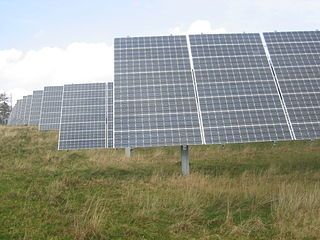Energy Policy and the Adoption of Renewables

While we’re making broad, sweeping statements, let me add one more: It’s hard to imagine a scenario in which clean energy succeeds in making a wholesale replacement of fossil fuels, as long as the latter is made artificially cheap. If we continue to subsidize the oil companies, fighting wars all over the planet in order to maintain access to the petroleum we need, and refusing to price in the other externalities, e.g., healthcare costs and long-term environmental damage, how can anyone even hope that solar, wind and the rest are going to compete?
We either implement an energy policy that pushes us in the direction of clean energy, or we deal with the consequences of waiting – probably several decades – for the price of fully dispatchable renewable energy to come down to parity.

Hi Craig,
My name is Kenny Hearn and I currently work at a hedge fund as an analyst/PM in johannesburg, South Africa (Coro Capital). I have taken it upon myself to become the hopefully guru from our firm on renewables as I have believed for a long time now that this is the only way forward (boring… I know). I have started my journey to allocating resources to this sector by reading your facts and fantasies book. I thought it was going to be a long road but your methodology in putting together the literature was incredible, truly a massive feat and stride for the future of renewables, in my opinion, as it encompasses the journey over the past 20 years,the current situation and the possible future corridors in such a short passage of reading… A real diamond in the rough!!
I have one initial query post reading your book as I have been thinking about something for quite some time particularly regarding Africa (hopefully I have many more to come). My biggest standpoint currently is that Africa should be the haven for establishing renewable companies to begin pilot projects to show the developed countries whatever technology can be achieved and secondary to this is that developing countries do not need to travel the routes long been walked by developed countries particularly in the choice of vehicles to enter our roads. A bit of background I have been the SA industrials analyst at barclay’s for the past 4 years prior to this job… South Africa is not the hope here… You can write them off!! Far too many wealthy people owning too much of the wealth with all the power with current technologies… But for me it’s the countries north of South Africa that provide the hope!
These are highly underdeveloped countries but have all the making to move directly to renewables. Mozambique has a massive hydroelectric plant already, Namibia has massive potential for solar thermal to power surrounding countries and the list goes on. And this is where my query comes in… In your book your views of hydrogen are not by any means becoming due to the large infrastructure required to replace existing in the US. While I believe this to be true regarding developed countries, those developing countries with little infrastructure at all currently still have the opportunity to go this route if technology does indeed reach a good standard… A company I have identified called ITM POwer in the UK seems to be at the forefront of this putting them into containers which would be perfect for developing African countries. This and surrounding countries have a lot of sunlight and huge water supplies from the great Zambezi river. The two could combine to make masses of hydrogen. We then have to get governments to negotiate deals with large hydrogen vehicle manufacturers to these vehicles on a line to send to Africa (which will not be difficult). Governments will be enthused by the ability to move away from its ability to not be dependent on oil deficits.
While we are still some way off this… I merely trying to gauge your views or differences with this kind of thinking given your experiences.obviously there are practicality issues. But from where I stand is option would be better than electric as MOzam would likely use its recently found massive coal deposits to fire up the electricity for the electric vehicles…
Thanks again so much for all your fabulous efforts and I hope to be in touch in the future.
Regards,
Kenny